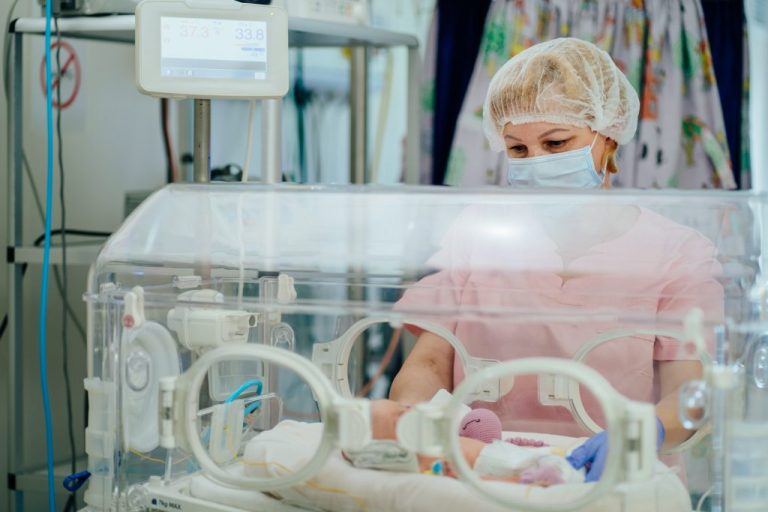Premature babies at risk of life-threatening infection can now be protected against the respiratory syncytial virus (RSV) with a single, long-lasting injection available on the NHS for the first time.
Health services across the UK are rolling out the drug nirsevimab from late September to provide protection against RSV to around 9,000 high-risk infants and babies born before 32 weeks this year.
“This new medication will provide vulnerable infants with their own suit of armour”
John Stewart
Nirsevimab (Beyfortus), which offers six months protection in a single dose, will replace monthly injections of palivizumab (Synagis) previously offered to a smaller number of vulnerable babies.
NHS England said that, according to trial data, palivizumab provides around 55% protection while nirsevimab offers more than 80% protection against the virus.
In addition, nirsevimab will be offered seasonally to eligible high-risk infants and young children with complex heart, lung or weakened immune system conditions.
RSV infects 90% of children by the age of two and is one of the leading causes of hospital admission, noted NHS England.
It flagged that babies born prematurely were three times more likely to need hospital admission due to RSV, and 10 times more likely to need intensive care, compared to full-term babies.
Unlike a vaccine, it said that nirsevimab provided infants with “ready-made immune protection” that helps to create a barrier to RSV infecting their cells.
NHS England has estimated that, if 95% of eligible infants receive nirsevimab, there could be nearly 350 fewer hospital admissions, including in paediatric intensive care units, this year.
Eligible infants entering their first RSV season – from September to February – will receive the injection under the ongoing care of their specialist neonatal team.
Alternatively, their family will be directed by the clinical team managing their child’s health on how to receive the immunisation ahead of winter, said NHS England.
Dr Claire Fuller, co-national medical director for NHS England said: “This injection will provide premature babies with a protective bubble against RSV just in time for the colder months.
“It will offer a long-lasting defence helping to avoid unnecessary hospitalisations and serious illness – giving babies the best possible start in life and shielding them from harm.”
In the UK, every year around 30,000 children under the age of five are hospitalised with RSV, and it causes around 30 infant deaths.
This drug works differently to the RSV vaccine offered to pregnant women, which boosts the mother’s immune system to make extra protective antibodies that are passed to the baby.
NHS England highlighted, however, that babies born before 32 weeks had limited or no protection from vaccinations given to pregnant women at the recommended time of around 28 weeks.
John Stewart, director of specialised commissioning at NHS England said: “This new medication will provide vulnerable infants with their own suit of armour that protects against what can be a life-threatening infection.”
Health systems in England, Scotland, Wales and Northern Ireland will offer nirsevimab after NHS England and the UK Health Security Agency negotiated an agreement with the manufacturer, Sanofi.
The injection, which was recommended by the Joint Committee on Vaccination and Immunisation, follows the first-ever launch of an RSV vaccine (Abrysvo) for pregnant women last September.
Dr Sam Ghebrehewet, head of vaccination and immunisation at Public Health Scotland, said: “The last year has seen significant progress in efforts to protect those most vulnerable to RSV, including the introduction of the maternal RSV vaccine which is offered at 28 weeks of pregnancy and helps protect newborn babies from serious illness.
“Babies born prematurely are at highest risk of serious complications from RSV and we welcome this programme expansion, which will help to ensure that even more babies are protected during their most vulnerable early months.”

